Conference Program: Gender and Growth Gaps in South Asia
The Inclusion Economics India Centre (IEIC) at the Institute for Financial Management and Research (IFMR), the Economic Growth Center (EGC), and Inclusion Economics at Yale University, in partnership with the Udaiti Foundation, the Asian Development Bank Institute, and the Bill & Melinda Gates Foundation held an in-person research and policy workshop on August 3, 2023, that spotlighted current policy needs and research insights on the drivers and consequences of gender gaps in the economy in twenty-first century South Asia.
Progress on gender equality amidst structural transformation has been remarkably uneven around the world, and recent crises like the COVID-19 pandemic, climate breakdowns, and shifting economic opportunities have further challenged gender-equitable growth. With a tightened fiscal environment in low- and middle-income countries (LMICs) paired with increased pressure on LMICs to undertake low-emission growth policies, there is an urgent need for rigorous analysis that can guide policymakers on how to approach, measure, and respond effectively to closing gender gaps en route to building stronger economies and improving long-term human welfare and shared prosperity.
In recent years, foundational analyses of women’s participation and contributions in driving economic development, such as the Feminization-U hypothesis, have been complemented by nuanced empirical insights on how institutional constraints and economic growth processes interact to impact the dynamics of women’s participation in the labor force and their economic well-being. There is large variation in the experience of different countries and regions even with common enabling trends such as sharply declining fertility and rising education levels for women. These stylized facts “point to an interplay of initial conditions, economic structure, structural change, and persistent gender norms and values” in determining outcomes such as women’s labor force participation (Klasen, 2019) and more broadly, women’s economic well-being. We bring this lens to examine gender and growth gaps in South Asia in the twenty-first century.
The Economic Growth Center and Inclusion Economics at Yale University are studying questions around structural transformation and gender gaps in the economy in a new research effort on ‘Gender and Growth Gaps’, supported by a grant from the Bill & Melinda Gates Foundation. Our work under this project will cover both an examination of macroeconomic forces - including new pathways of structural transformation - and microeconomic determinants - including beliefs and norms - that govern labor demand and supply and that likely have distinct patterns by gender.
This workshop consisted of three research and policy sessions, a keynote dialogue, and a set of parallel working sessions, during which policymakers, civil society, and industry leaders, and researchers engaged in a set of facilitated discussions around pressing policy needs in South Asian countries and insights from the latest research on the drivers and implications of gender inequality in the economy. The workshop served as a forum to engage with the proposed research agenda under the Gender and Growth Gaps project, and shape this effort for policy utility.
Agenda
Opening Remarks
Speakers
- Rohini Pande (Yale University)
- Tetsushi Sonobe (Asian Development Bank Institute)
Session 1
State of the Evidence and Policy Needs
This session started with a presentation of the state of the evidence on gender gaps and the economy, drawing on the draft white paper being produced as part of the Gender and Growth Gaps project.
Against that background of what we know and what we do not based on the current evidence base, we then discussed what the policy needs are in South Asian countries today. Questions that were explored engaging with leaders from policy and practice included:
- What are some of the policy instruments and levers that have worked elsewhere that can inform policy design in South Asian countries?
- What are some of the top priorities related to gender and the economy in South Asian countries? What are common issues and where do countries differ?
- What are key preferences and needs from the policy and practice sides, and how can research respond to these effectively?
Research Presentation
- Aishwarya Lakshmi Ratan (Yale Economic Growth Center) presented an overview of the ‘Gender and Growth Gaps’ white paper/evidence review in progress
Policy and Practice Panel
- Manish Sabharwal (TeamLease Services Limited)
- Aparna Uppaluri (Tata Trusts)
- Mahua Roy Choudhury (Bihar Rural Livelihoods Promotion Society)
- Moderator: Aishwarya Lakshmi Ratan (Yale Economic Growth Center)
Session 2
Deconstructing labour demand-side issues amidst structural transformation (service-led and digitally-enabled growth)
This session focused on the examination of macroeconomic forces - including new pathways of structural transformation that involve service-led and digitally-enabled growth - and how these dynamics relate to gender gaps in the economy.
Research Presentations
- Gaurav Chiplunkar (Darden School of Business, University of Virginia)
- Ashwini Deshpande (Ashoka University)
Panel Discussion
- Pooja Nanda (Mahindra Group)
- Neha Wadhawan (International Labour Organization)
- Gaurav Chiplunkar (Darden School of Business, University of Virginia)
- Ashwini Deshpande (Ashoka University)
- Moderator: Yamini Atmavilas (The Udaiti Foundation)
Keynote Dialogue
Women and Work: Perspectives from Research and Practice
This session featured a conversation between two leading gender experts with each sharing their work in this area and insights for policy on women’s work and economic growth.
How can gender-intentional policies be designed to reduce gender inequities in the labor market, and improve talent allocation and productivity? By assessing gender gaps and dynamics in a variety of economic spheres, from the care industry and biotech to government workers and informal workers, this session touched upon aspects such as occupational segregation, earnings, vulnerability, and quality of work.
Keynote Speakers
- Rohini Pande (Yale University) and Renana Jhabvala (SEWA Bharat)
- Moderator: Kavitha Iyer (Independent Journalist)
Access the slides from Prof. Pande's presentation here.
Session 3
Deconstructing labour supply-side issues (policy, practice and measurement challenges)
A host of variables appear to drive women’s decisions around labor supply, labor force participation, and occupational choice that are currently poorly captured in standard household and labor force surveys. We examined these issues and questions in this session, ranging from the measurement of attitudes and norms to the measurement of work itself.
Research Presentations
- Simone Schaner (University of Southern California)
- Rosa Abraham (Azim Premji University)
Panel Discussion
- Dr. Kajal, IAS (Director, Department for Promotion of Industry and Internal Trade (DPIIT), Government of India)
- Uma Mahadevan, IAS (Additional Chief Secretary, Panchayati Raj, Government of Karnataka)
- Hema Swaminathan (Indian Institute of Management Bangalore)
- Simone Schaner (University of Southern California)
- Rosa Abraham (Azim Premji University)
- Moderator: Urmi Bhattacharya (Inclusion Economics India Centre)
Parallel Sessions
Measurement Issues
There are a number of measurement challenges, changes, and gaps in measuring labor force participation and employment, and underlying driving factors, in South Asia. How might we innovate in measurement approaches to better capture reality?
Session co-leads:
- Sandhya Garg (Institute of Economic Growth)
- Nandana Sengupta (Indian Institute of Technology Delhi)
Access the slides here.
Policy Tools
What does the evidence point to in terms of promising policy pathways for reducing gender gaps in the economy? How do policy interventions interact with structural, formal institutional, and normative features of economic life?
Session co-leads:
- Roli Asthana (United Nations)
- Aishwarya Lakshmi Ratan (Yale Economic Growth Center)
- Yamini Atmavilas (The Udaiti Foundation)
Gender and Climate Change
How can policymakers advance gender-sensitive economic development in the midst of climate breakdowns that threaten economic growth and are likely to affect women’s economic opportunities and activities?
Session co-leads:
- Dil Rahut (Asian Development Bank Institute)
- Anil Pokhrel (National Disaster Risk Reduction and Management Authority, Government of Nepal)
- Arjan de Haan (International Development Research Centre)
Closing Remarks
led by the Udaiti Foundation
Speakers
Rosa Abraham, Azim Premji University
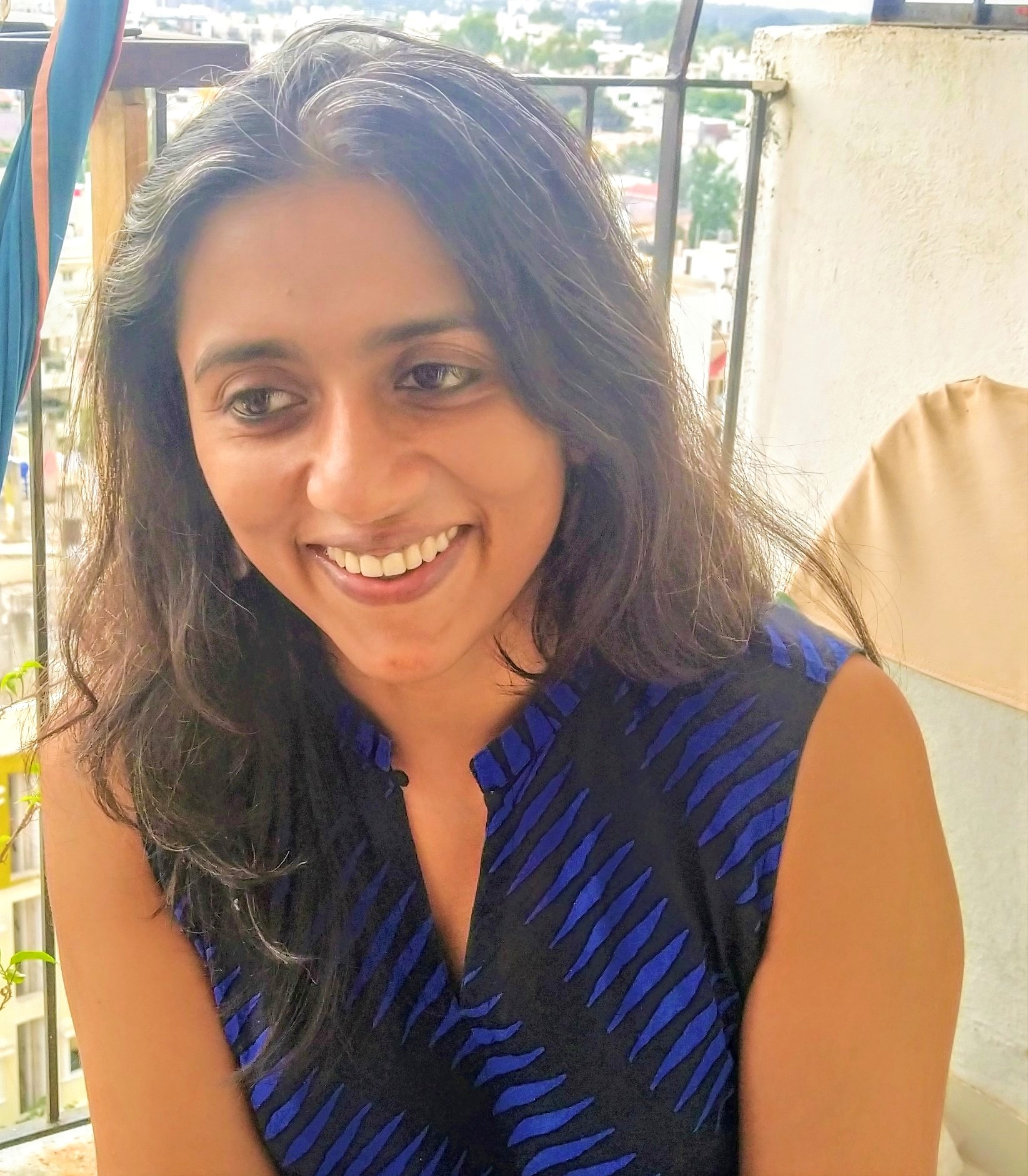
Rosa Abraham is an Assistant Professor at Azim Premji University. Her research focuses on informal work and women’s employment with particular interest in issues at the intersection of labor statistics and women’s work. At the Centre for Sustainable Employment, she has been involved in the State of Working India reports and in the two primary surveys – India Working Survey and Covid-19 Livelihoods Survey, conducted by the Centre. She previously worked as a researcher at the Ashoka Trust for Research in Ecology and Environment and as a lecturer at the Madras School of Economics.
Roli Asthana, United Nations
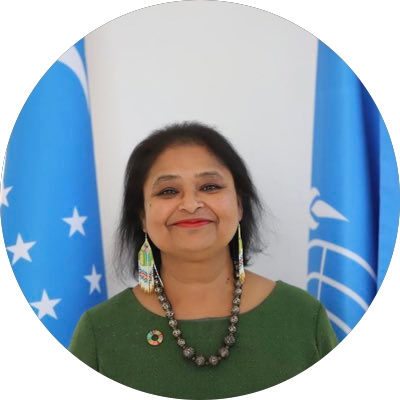
Roli Asthana is a UN Resident Coordinator, most recently in Uzbekistan. Previously, she spent 18.5 years at the UK Department for International Development (DFID, now known as FCDO), where she was Head of DFID China until Sep 2021. While at DFID, she worked in a range of leadership roles in India (Deputy Head and Head of Programmes & Partnerships, Strategy, Results & Communications), Asia Regional (Head of Asia Regional Programme and Asia Directors’ Office), South Asia (Head of South Asia Policy Team), Africa Regional (Africa Growth Adviser) and the Middle East (Economic Adviser for Yemen, Palestinian Territories, Jordan, Egypt and MENA Regional). She holds a Ph.D. from the London School of Economics in the political economy of policy reform in developing countries.
Yamini Atmavilas, The Udaiti Foundation

Yamini Atmavilas is a gender sector & philanthropy leader with a track record of building impactful partnerships in the philanthropic, public and social sectors for advancing gender justice. Yamini is currently President, The Udaiti Foundation that works on women’s employment, entrepreneurship and agency. Udaiti is part of the portfolio of foundations incubated by Indian philanthropist, Ashish Dhawan under The Convergence Foundation umbrella. Previously, she led portfolios on Women's Economic Empowerment Programs, What Works Initiatives, and Health Systems Research & Evaluation with the Bill & Melinda Gates Foundation where she founded an ambitious portfolio of scalable programs for women's collectives, rural livelihoods, and social empowerment, and evidence & think tank initiatives. Yamini has also led the Gender Studies Area at the Administrative Staff College, Hyderabad providing policy research & advisory & capacity on gender policies, gender budgeting and gender data, and monitoring & evaluation initiatives across South Asia. She is widely published on gender, employment, health, education, and economic development. She has a PhD in Women's Studies from Emory University, and lives in Bangalore.
Urmi Bhattacharya, Inclusion Economics India Centre
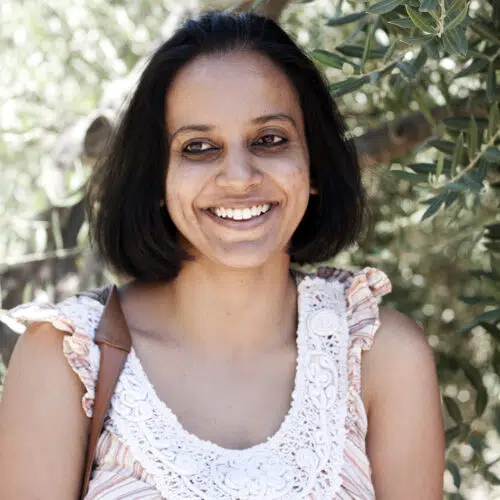
Urmi Bhattacharya is a Research Lead at Inclusion Economics India Centre (IEIC) at IFMR/Krea University. As a Research Lead, she serves as an internal advisor and provides oversight and day-to-day guidance and support to research teams, to ensure IEIC is set up for successful research and effective policy engagement with gender policy counterparts. She advises on research, programmatic, operational, financial and human-resource related issues in service of objectives in IEIC’s research portfolios. She works with the Executive Director and Research Managers to ensure that broader operational learnings from this vertical inform the development of a high-calibre research team across the organization, in all portfolios.
Prior to joining IEIC, Urmi has worked as the Country Director with Fortify Health, India and Research Manager at J-PAL, South Asia. Urmi holds a PhD in Economics from Indiana University, Bloomington, USA. She holds a Master in Arts degree in Economics from J.N.U, New Delhi (2006) and a Bachelor of Science degree in Economics from Presidency College, Kolkata (2004).
Gaurav Chiplunkar, Darden School of Business, University of Virginia
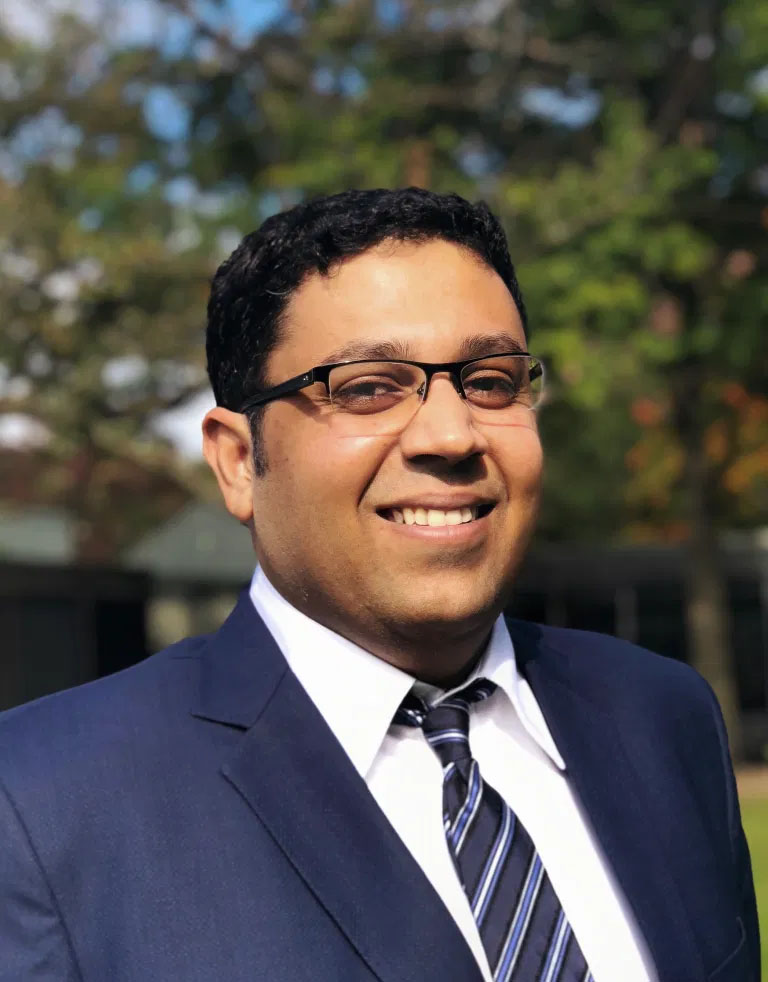
Gaurav Chiplunkar is an Assistant Professor at the Darden Business School, University of Virginia. His research studies the causes and consequences of labor market frictions in low-income countries, with a particular emphasis on the barriers faced by women and the youth. He is interested in examining the transformative potential of digital technologies and industrial policy reforms in mitigating these barriers, their aggregate implications on the allocation of resources and talent in the economy, and their consequences on economic growth and productivity. His research contributes to areas of development and labor economics, along with gender and personnel economics. Gaurav is an affiliate of the Abdul Latif Jameel Poverty Action Lab (J-PAL), Institute of Labor Economics (IZA), and Yale Research Initiative on Innovation and Scale (Y-RISE). He received his Ph.D. in Economics from Yale University in 2019.
Mahua Roy Choudhury, Bihar Rural Livelihoods Promotion Society, Government of Bihar
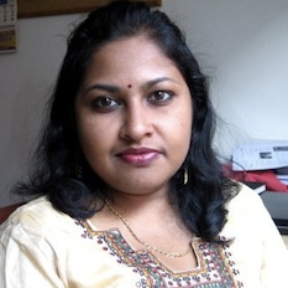
A Development Professional with specialization in Knowledge Management, Program Management, Public Policy Management, Institution Building and Rural Livelihood Promotion, Mahua focuses upon enhancing organization capacity in strategic planning to push projects forward. She has a work experience of over 24 years in the sector and has worked from various platforms of Governmental and Non-Governmental agencies such as Social Welfare Department, Government of Bihar, CAPART, UNDP, PRADAN and BASIX. She has been a core team member in conceptualizing World Bank supported projects - Bihar Integrated Social Protection Strengthening Project (BISPS) and Bihar Transformative Development Project (BTDP) and DFID supported Sector Wide Approach for Strengthening Health (SWASTH). She has been instrumental in instilling professional youths in the development sector by strengthening the Young Professionals Program. She is a Chevening Clore Leadership Fellow and also a NUFFiC fellow.
Arjan de Haan, International Development Research Centre

Arjan de Haan is Senior Program Specialist at Canada’s International Development Research Centre, based in Ottawa. His work focuses on supporting southern-based research, including in response to the COVID-19 pandemic, and integrating climate and gender equity considerations into policy analysis. He previously led the IDRC GrOW program on women’s economic empowerment, and published and taught on social policy in development contexts, labour migration, social inequalities, and the aid industry.
Ashwini Deshpande, Ashoka University
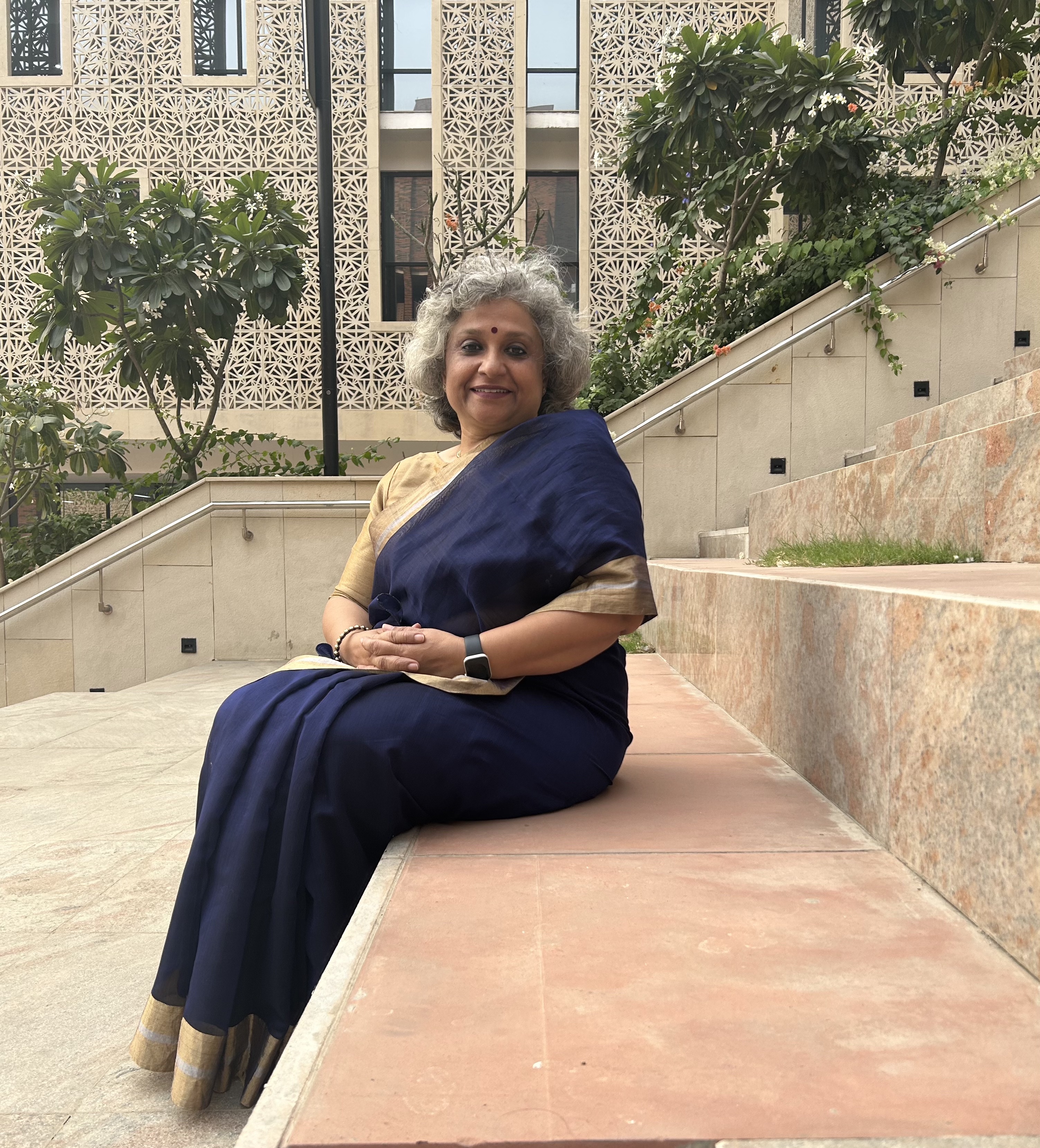
Ashwini Deshpande is Professor of Economics, and Founding Director, Centre for Economic Data and Analysis (CEDA) at Ashoka University, India. Her Ph.D. and early publications have been on the international debt crisis of the 1980s. Subsequently, she has been working on the economics of discrimination and affirmative action, with a focus on caste and gender in India. She has published extensively in leading scholarly journals. She is the author of "Grammar of Caste: economic discrimination in contemporary India", Oxford University Press, New Delhi, 2011 (Hardcover) and 2017 (Paperback); and "Affirmative Action in India", Oxford University Press, New Delhi, Oxford India Short Introductions series, 2013. She has edited several volumes, the latest being "Handbook on Economics of Discrimination and Affirmative Action", Springer Major Reference Works, 2023. She received the EXIM Bank award for outstanding dissertation (now called the IERA Award) in 1994, the 2007 VKRV Rao Award for Indian economists under 45 and SKOCH Award for Gender Economics in 2022. She featured in the 2022 Forbes W-Power list as one of India's "top 20 self made women".
Sandhya Garg, Institute of Economic Growth
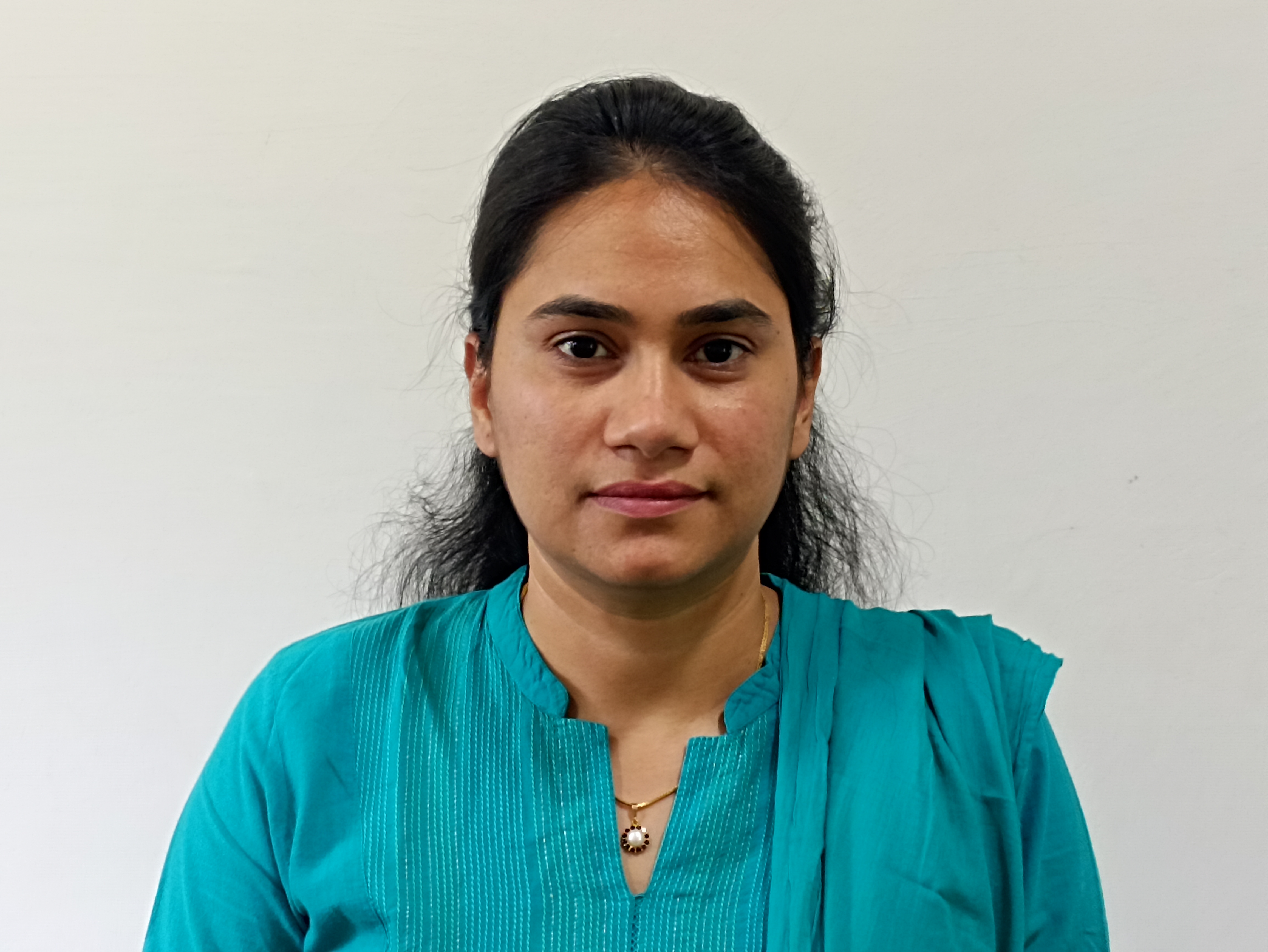
Sandhya Garg is an Assistant Professor in HDFC Chair in Banking and Finance at the institute of Economic Growth (IEG), New Delhi. Her main areas of research are banking and finance, and applied economics with focus on the impacts of bank branch expansion in India on the gender-wise and caste-wise entrepreneurship and sectoral mobility. Before joining IEG, she worked at NCAER, Delhi. She received her PhD in Economics from IGIDR Mumbai.
Kavitha Iyer, Independent Journalist
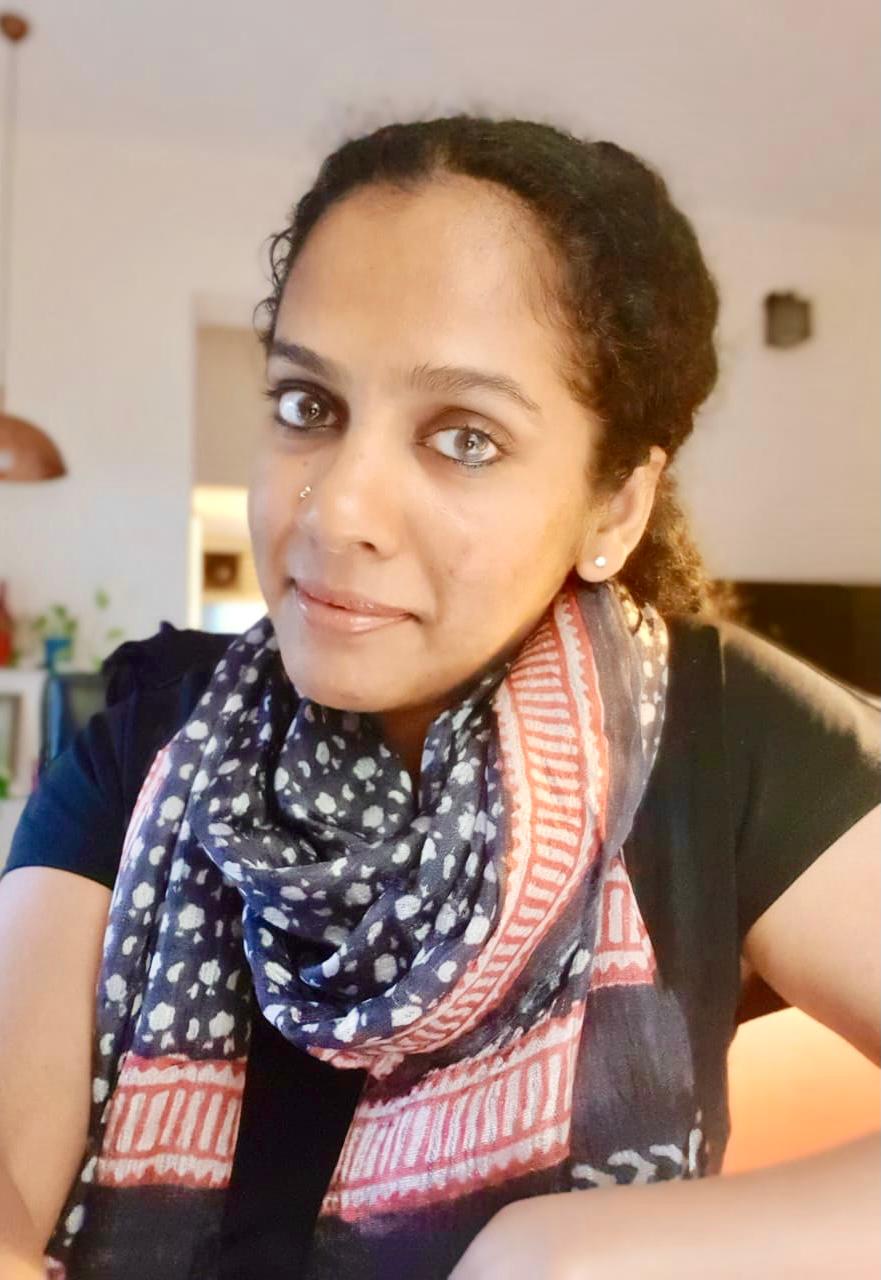
For 23 years, Kavitha Iyer’s work as a journalist has revolved around recounting the stories of those on the margins, from indigenous farmers to migrant women labourers. Her first book, Landscapes Of Loss: The Story Of An Indian Drought (Harper Collins India, 2021) won the prestigious Tata LitLive award for best debut. Kavitha is a member of the editorial board of Article-14.com, is a Logan Nonfiction Program fellow and an Earth Journalism Network fellow. Her writing occupies the intersection of gender, labour, rural India, migration and policy. Her work has been published in, among others, Time Magazine, Al Jazeera, The Guardian, People’s Archive Of Rural India and Article-14.com. Kavitha is also editor of '26/11 Stories of Strength' (Penguin, 2018), a compilation of accounts from victims of the Mumbai terror attacks of 2008. She has taught media students and has led large teams of journalists at major mainstream newspapers.
Dr Kajal IAS, Department for Promotion of Industry and Internal Trade, Government of India

Dr Kajal IAS is a Director at the Department for Promotion of Industry and Internal Trade, Government of India. She provides administrative and managerial oversight with technical and strategic inputs on RMNCHA in public sector driven programs. She oversees monitoring throughout project implementation while driving teams to achieve objectives with tight deadlines. She has extensive experience at cross cutting edge with multiple stakeholders such as NGOs, International organizations and others. She is skilled in operations, policy design, program management, negotiation, Strategic Planning, and Monitoring and Evaluation with exceptional interpersonal communication skills. She is a clinically trained obstetrician and gynecologist from PGIMER, India. Passionate for healthcare, she completed Global Health Sciences at UCSF. She has multi-country experience, especially in LMICs, for interventions for "quality health for all."
Renana Jhabvala, Self-Employed Women’s Association
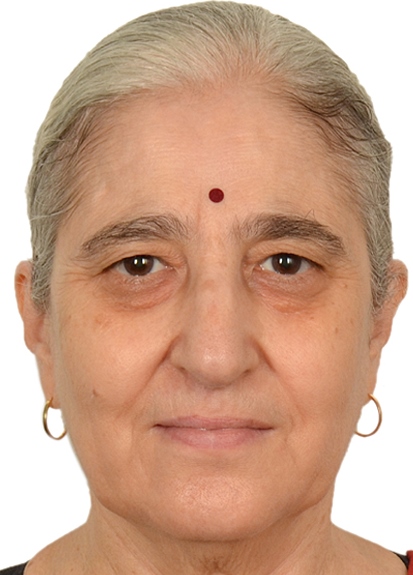
Renana Jhabvala is best known for her long association with the Self-Employed Women's Association (SEWA), and for her writings on issues of women in the informal economy. She is presently the President of SEWA Bharat and Chair of SEWA Grih Rin. In 1990, she was awarded a Padma Shri from the Government of India for her contributions in the field of social work. In April 2012, she was Chancellor of Gandhigram Rural University (2012-2017) and was Member of UN Secretary General’s High-Level Panel on Women’s Economic Empowerment (2016-2017). She is a Co-founder of a number of international networks including WIEGO and HomeNet South Asia.
Smt. Uma Mahadevan, Department of Rural Development and Panchayati Raj, Government of Karnataka
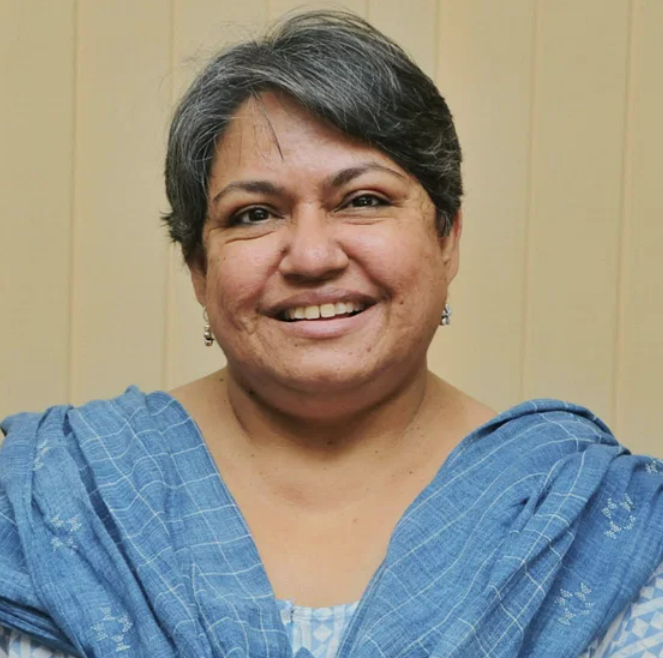
Smt. Uma Mahadevan is a 1992 batch IAS officer of Karnataka cadre who is currently serving as the Additional Chief Secretary (Panchayat Raj) in Department of Rural Development & Panchayat Raj, Government of Karnataka. She has served in multiple capacities at the centre and the state, prominent among them in the Departments of Women & Child Development, Planning, Agriculture, Education, and Health & Family Welfare. She has also served in the Department of Atomic Energy, Government of India and Tata Institute of Fundamental Research.
She has been a member of the ECCE Taskforce set up by the Ministry of Women & Child Development. As Additional Chief Secretary (Panchayat Raj), she guides the three tier panchayat raj institutions towards the holistic development of rural areas in Karnataka state. She is a renowned expert in her sector with deep passion for inclusive change. She holds a postgraduate degree in English literature and has also authored multiple articles/publications on culture and development issues.
Pooja Nanda, Mahindra Group
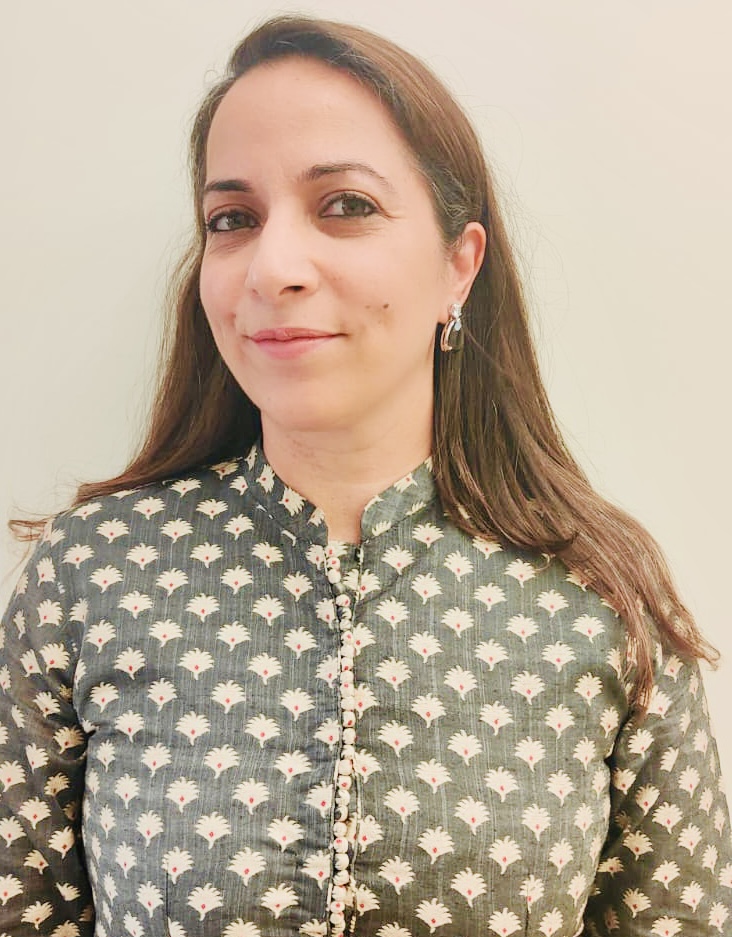
Pooja Nanda recently joined the Mahindra Group in the CSR team as Head of the Women's Economic Empowerment vertical, now called “Mission Even”. Pooja has over 24 years of work experience at several Fortune 500 companies ((KPMG, Citibank, MasterCard, Credit Suisse and ThomsonReuters/Refinitiv), and is well versed in navigating diverse and key positions in large scale and global teams. She has proven success as a Professional Services and Program Management team leader in diverse business and cultural environments and has worked and lived in US, Europe, and Asia. She holds a Global MBA from INSEAD and a Bachelor of Arts degree in Economics & Environmental Studies from the University of Rochester. Pooja is keen to leverage her experience towards sustainable business practices and ESG, a topic that she is extremely passionate about.
Pooja, who was born and raised in Mumbai, left to pursue her undergraduate studies in the United States in 1995, has just returned back after 28 years to join the social development sector, and pursue her long term career goals to leverage the knowledge and skills towards sustainable business practices and ESG.
Rohini Pande, Yale University
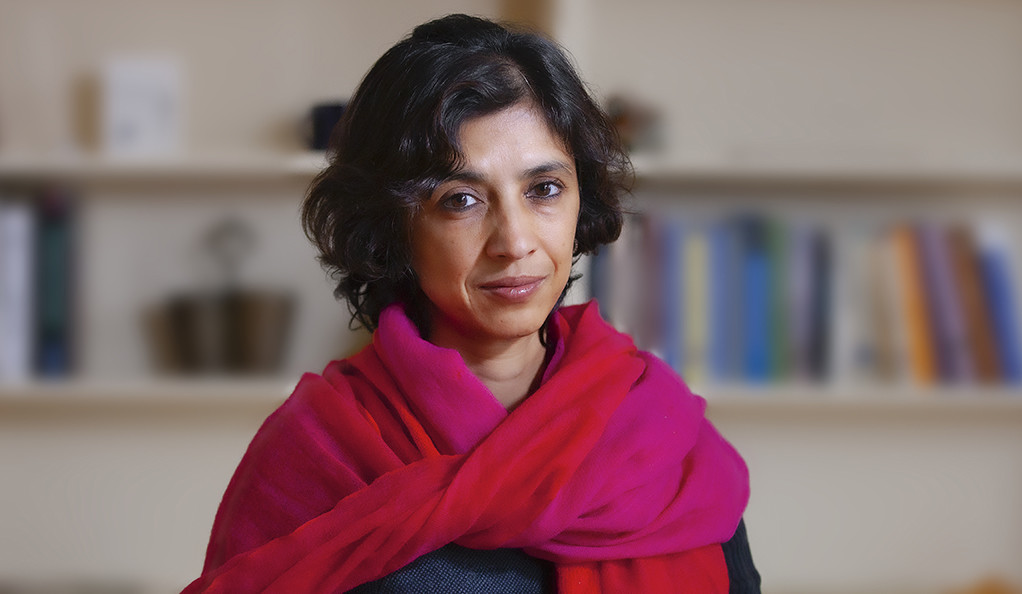
Rohini Pande is the Henry J. Heinz II Professor of Economics and Director of the Economic Growth Center, Yale University. She is a co-editor of American Economic Review: Insights. Rohini received a PhD in economics from the London School of Economics, a BA/MA in Philosophy, Politics and Economics from Oxford University and a BA in Economics from Delhi University.
Rohini's research is largely focused on how formal and informal institutions shape power relationships and patterns of economic and political advantage in society, particularly in developing countries. She is interested in the role of public policy in providing the poor and disadvantaged political and economic power, and how notions of economic justice and human rights can help justify and enable such change. Her most recent work focuses on testing innovative ways to make the state more accountable to its citizens, such as strengthening women’s economic and political opportunities, ensuring that environmental regulations reduce harmful emissions, and providing citizens effective means to voice their demand for state services.
In 2018, Rohini received the Carolyn Bell Shaw Award from the American Economic Association for promoting the success of women in the economics profession. She is the co-chair of the Political Economy and Government Group at the Jameel Poverty Action Lab (J-PAL), a Board member of Bureau of Research on Economic Development (BREAD) and a former co-editor of The Review of Economics and Statistics. Before coming to Yale, Rohini was the Rafik Harriri Professor of International Political Economy at Harvard Kennedy School, where she co-founded Evidence for Policy Design.
Anil Pokhrel, National Disaster Risk Reduction and Management Authority (NDRRMA), Government of Nepal
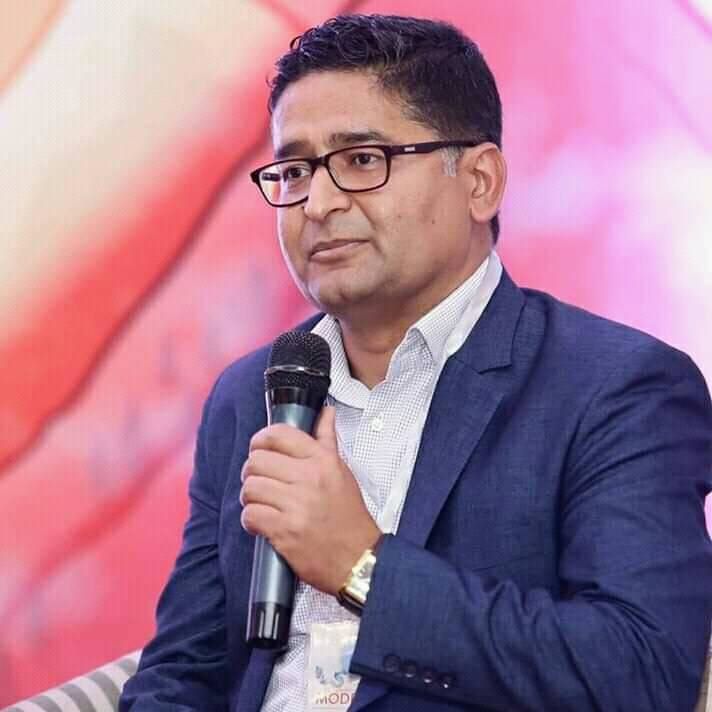
As the first Chief Executive of the Government of Nepal’s NDRRMA since late 2019, Anil Pokhrel designs and sets the Authority's organisational architecture, budget and programmes. Previously he was a research associate at Overseas Development Institute; his career as a risk management and adaptation specialist has included work with organisations including PLAN8 Risk Consulting, the Asian Development Bank and the World Bank. Anil is a civil engineer by training and also holds a Master of Environmental Management from Yale University. He lives in Kathmandu, Nepal.
Dil Rahut, Asian Development Bank Institute
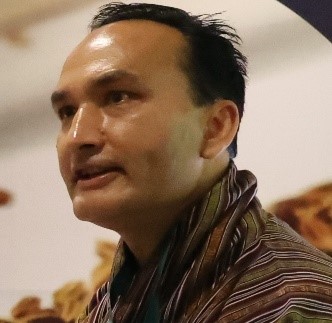
Dil Rahut is Vice Chair of Research at the Asian Development Bank Institute. He was a Senior Global Program Manager for the International Maize and Wheat Improvement Centre. He previously worked for the Royal Monetary Authority of Bhutan’s Research and Statistics Department. He also served as a research fellow at the WorldFish Centre; senior fellow and Japan chair at the Indian Council for Research in International Economic Relations; chief of research, planning, and monitoring and Visa/Mastercard director at the Bank of Bhutan Ltd; and assistant professor of development economics at South Asian University. He has a Ph.D. in development economics from the University of Bonn’s Center for Development Research, a master’s degree in economic policy management from the University of Tsukuba, an MBA, and a bachelor of science degree from India. He has over 170 publications in Scopus-indexed journals, guest-edited several journal special issues, and edited books on development.
Aishwarya Lakshmi Ratan, Economic Growth Center, Yale University

Aishwarya Lakshmi Ratan serves as the Deputy Director of the Economic Growth Center, Yale University’s hub for research and teaching on international development and trade. Founded in 1961, the EGC promotes the use of economics research to contribute to the advancement of poor and marginalized people in lower-income countries. Prior to the EGC, Aishwarya managed research and evaluation investments for the Bill & Melinda Gates Foundation’s Women’s Economic Empowerment strategy, and for the Foundation’s Financial Services for the Poor team. Her previous experience includes running a financial inclusion research initiative at Yale in partnership with Innovations for Poverty Action, leading the Monitoring, Research and Evaluation unit at Women for Women International and working as an Associate Researcher at Microsoft Research India. Aishwarya earned a bachelor’s degree in economics and women’s studies from Wellesley College and a master’s degree in public administration and international development from the Harvard Kennedy School.
Manish Sabharwal, TeamLease Services Limited
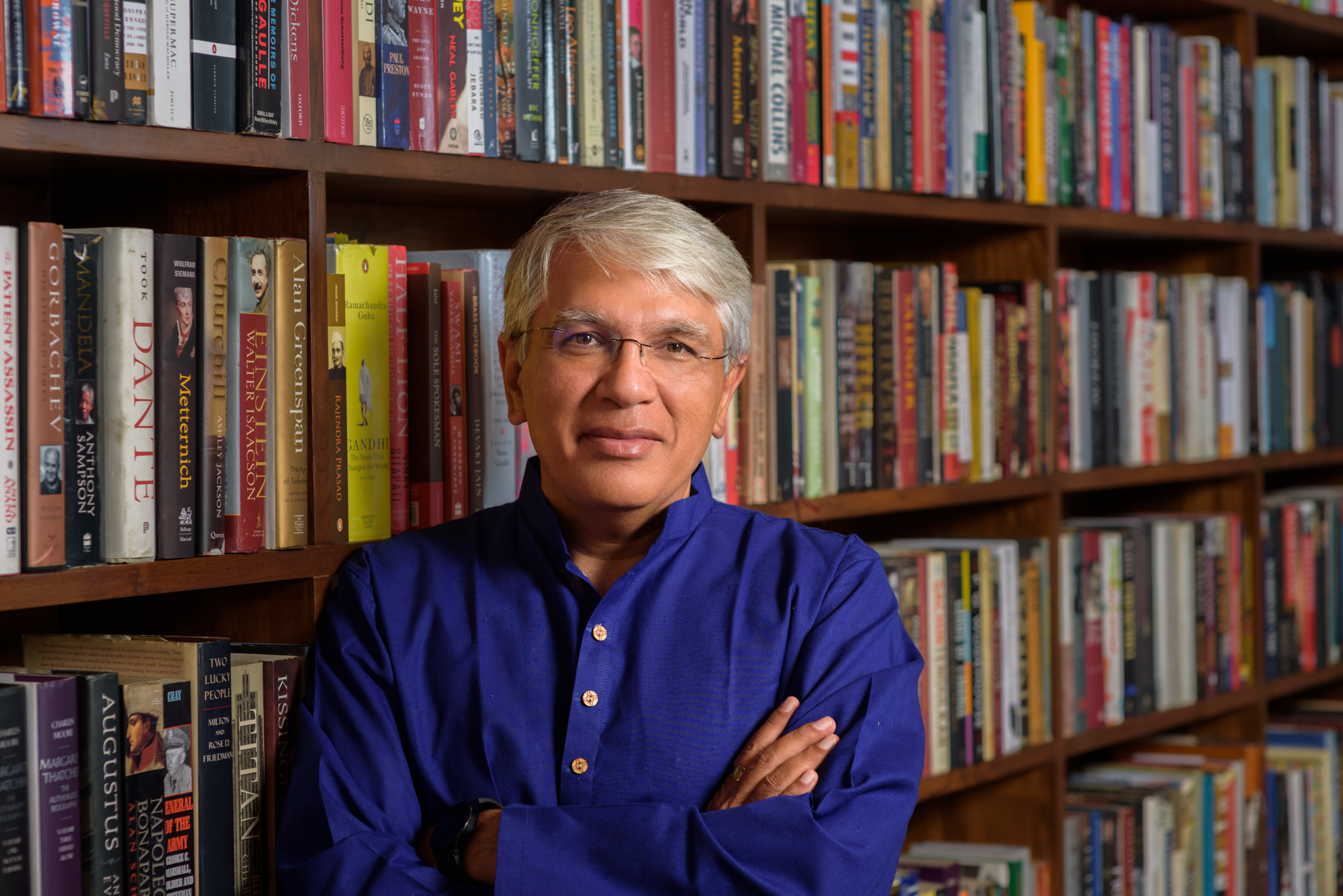
Manish Sabharwal is Vice-Chairman of Teamlease Services, India’s largest staffing and human capital firm. Teamlease has over 300,000 employees in 5000+ cities, sponsored India’s first vocational university and operates India’s fastest growing national PPP apprenticeship program. The company has hired 1.9 million employees over the last 20 years. He earlier co-founded India Life, an HR services company that was acquired by NYSE listed - Hewitt Associates. Consequently, he served as CEO of Hewitt Outsourcing (Asia) based in Singapore.
Manish has served on various policy committees for education, employment and employability. He served as an Independent Director on the Board of the Reserve Bank of India (RBI). He is a Member of Advisory Board of the Comptroller and Auditor General (CAG) and a governing board member of National Council of Applied Economic Research (NCAER). He is also Managing Trustee of the New India Foundation that offers fellowships for writing books about post-1947 India and is a columnist for Indian Express. He got his MBA from The Wharton School and is an alumnus of Shriram College, Delhi and Mayo College, Ajmer.
Simone Schaner, University of Southern California
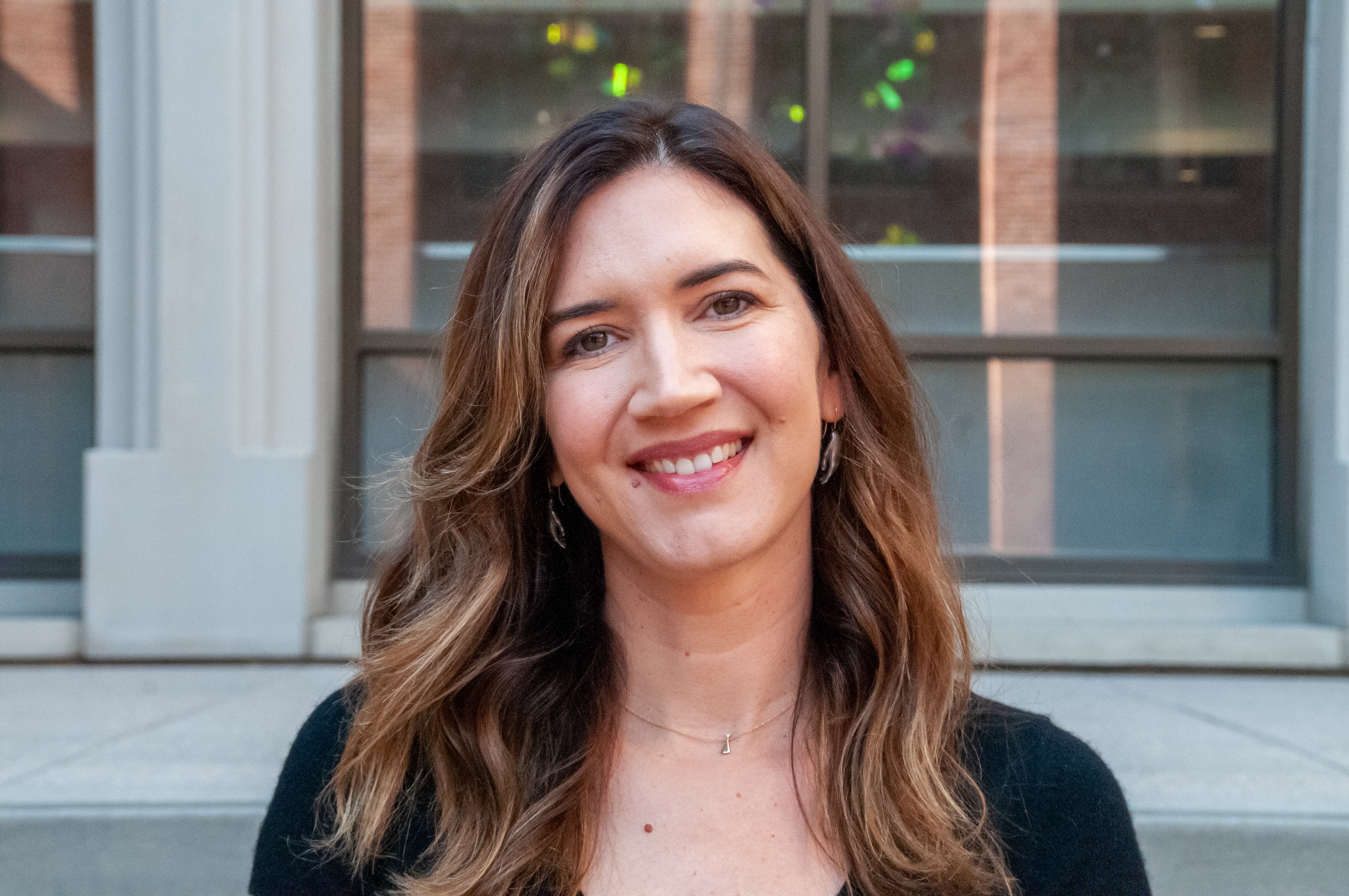
Simone Schaner is an Associate Professor (Research) of Economics at the University of Southern California and the Scientific Director for Gender at Inclusion Economics. Her work explores economic mechanisms that contribute to inefficiency and misallocation in low-income settings, with a focus on labor, financial, and healthcare markets. She is also an affiliate of the Bureau for Research and Economic Analysis of Development, the Abdul Latif Jameel Poverty Action Lab, the Center for Effective Global Action, and a Faculty Research Fellow at the National Bureau of Economic Research. She has a Ph.D. in economics from the Massachusetts Institute of Technology and an A.B. in economics from Princeton University.
Nandana Sengupta, Indian Institute of Technology Delhi
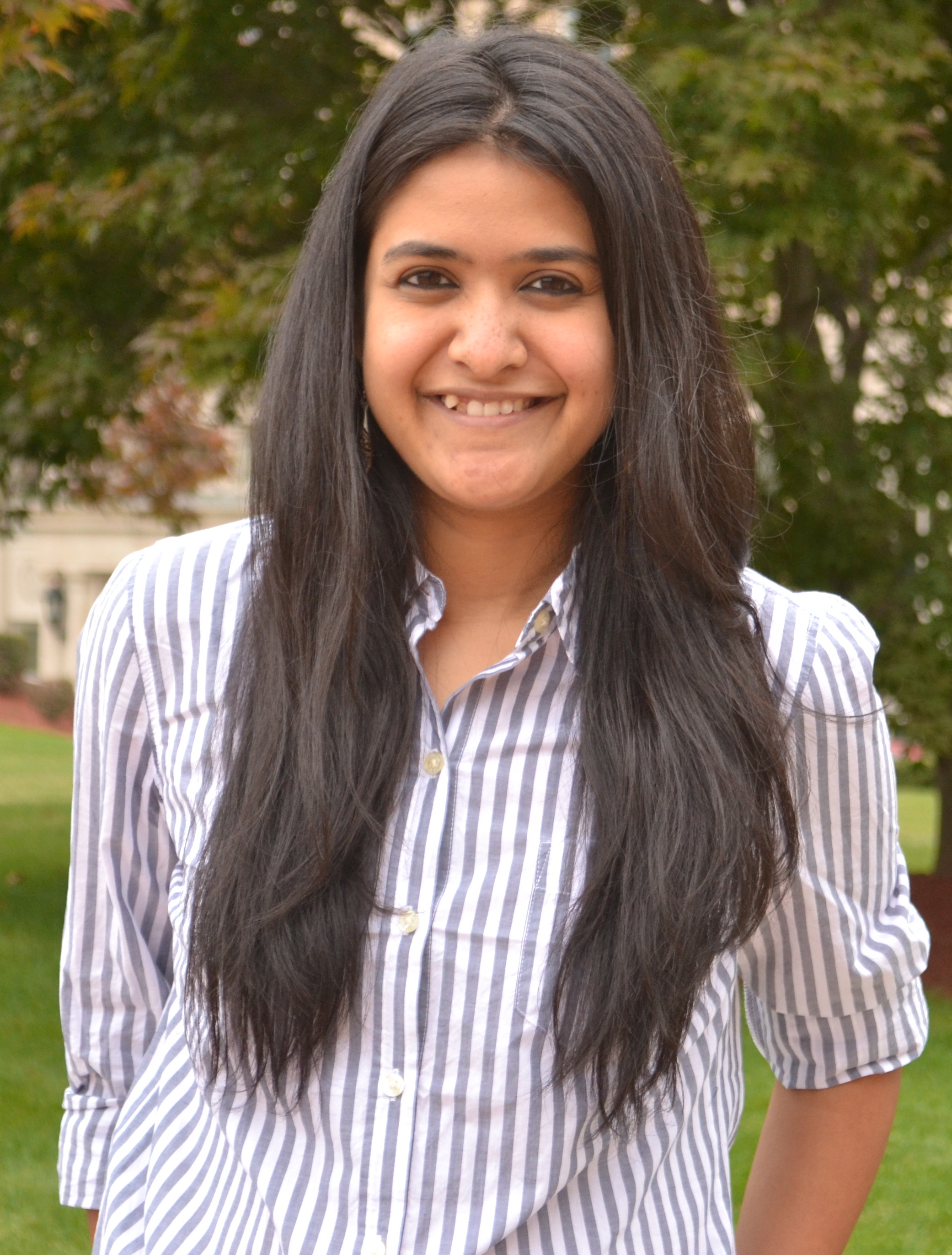
Nandana Sengupta is an Assistant Professor at the School of Public Policy, IIT Delhi. She is an applied econometrician using both machine learning and qualitative techniques to inform her work. Her current research is centered on women in STEM and estimating potential biases embedded in machine learning systems in India. Her broader research agenda lies at the intersection of applied machine learning and economics, with a particular focus on Indian labour markets, survey design and algorithmic bias. Nandana received her PhD in Economics from the Tepper School of Business at Carnegie Mellon University in 2015. Prior to joining IIT Delhi she was Assistant Professor at the School of Policy and Governance in Azim Premji University, and a postdoctoral scholar at the University of Chicago.
Tetsushi Sonobe, Asian Development Bank Institute
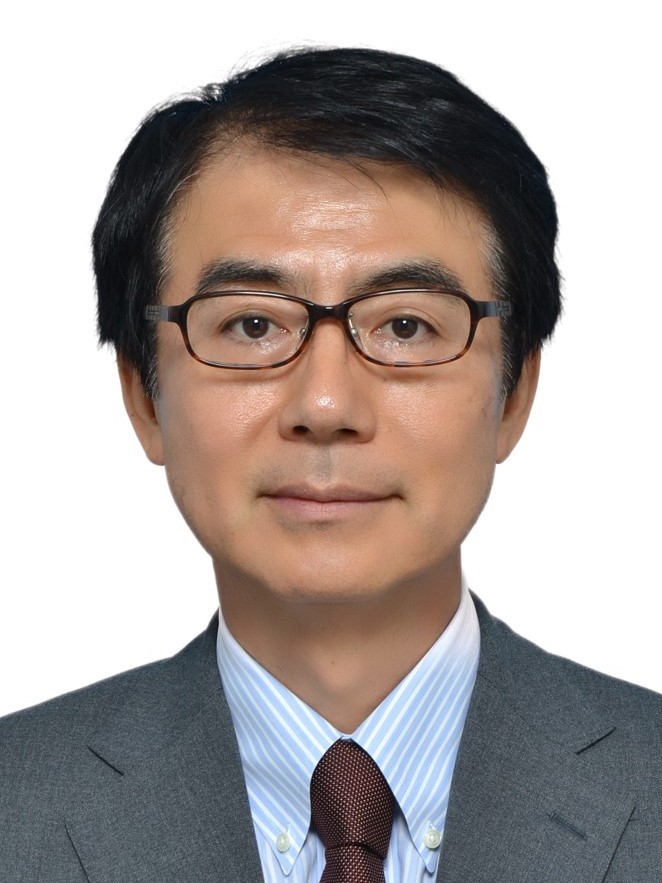
Tetsushi Sonobe is the Dean and CEO of the Asian Development Bank Institute (ADBI), the Tokyo-based think tank of the Asian Development Bank that promotes the realization of a prosperous, inclusive, resilient, and sustainable Asia and the Pacific through policy research and capacity building. His research interests are centered on the empirics of economic development, particularly the roles of industrial clusters, human capital, social capital, management practices, and market competition in industrial development in developing Asia and other regions. Before joining ADBI in April 2020, Tetsushi served for six years as a vice president of the National Graduate Institute for Policy Studies (GRIPS) in Tokyo and taught economics for thirty years at Tokyo Metropolitan University and GRIPS. Tetsushi obtained his PhD in economics from Yale University and BA in economics from the University of Tokyo.
Hema Swaminathan, Indian Institute of Management Bangalore
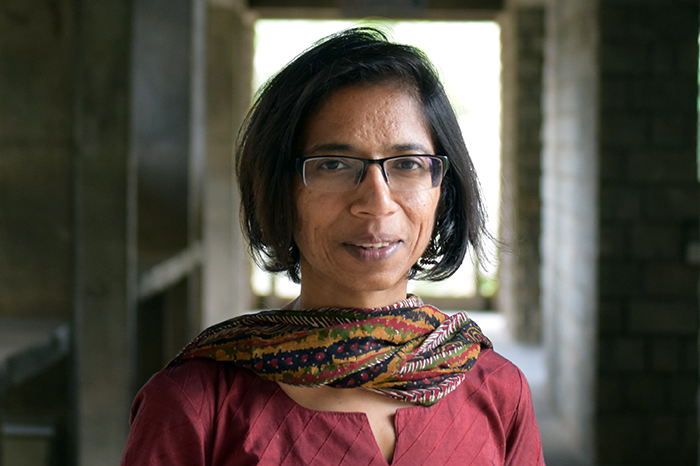
Hema Swaminathan is Professor, Public Policy, at the Indian Institute of Management Bangalore. Her recent research focuses on inequality in income and wealth distributions between men and women, women’s labour participation in India, and survey methodology to collect improved data on several domains (individual-level data asset ownership and wealth, decision making by women, and women’s engagement with the labour market).
Aparna Uppaluri, Tata Trusts
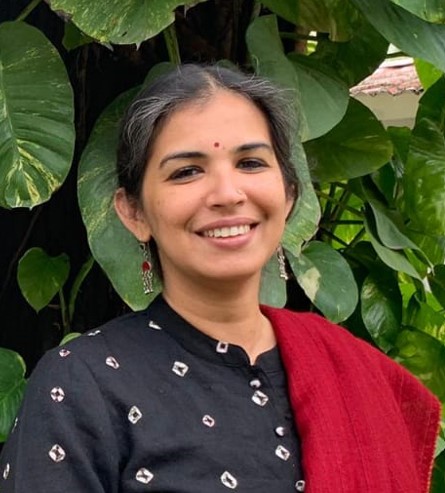
Aparna Uppaluri is currently the Chief Operating Officer, leading philanthropic programs at the Tata Trusts with operational and strategic planning oversight over all thematic areas including livelihoods, health, nutrition, WaSH as well as Arts & Culture. In her previous role, she served as Senior Global Program Officer at the Ford Foundation and acting Program Director of the Foundation’s India, Nepal, Sri Lanka office. She is an interdisciplinary professional in the fields of philanthropy, women’s rights, public health, education, arts, and culture. Her work has focused on addressing issues of inequality and building gender justice across sectors. Her global work has included nurturing philanthropic collaboratives, intergovernmental partnerships, and strategic field building across thematic areas. She has managed large collaborative funds with global teams across the world.
She trained as an epidemiologist and worked in public health and health systems research for over 14 years in Canada and India where she worked at the University Health Network (Toronto) and McMaster University. She led the Science and Society Program at the National Centre for Biological Sciences (NCBS), Bangalore, India from 2014 to 2017. She was also Founder Director of the Antara Collective, Bangalore - a performing arts collective in Bangalore which she ran for 10 years. Through this engagement she worked closely with artist and artisan communities across the country and worked to promote conservation, adaptation and livelihoods.
She was educated in Canada at Queen’s University (in Life Sciences) and the University of Toronto (in Community Health and Epidemiology).
Neha Wadhawan, International Labour Organization

Neha Wadhawan works at the International Labour Organization and has been based at the New Delhi office since 2018. She is the National Project Coordinator of the Work in Freedom Programme in India, a 10-year ILO integrated development cooperation programme focusing on preventing trafficking of adolescent girls and women into forced labour conditions within the informal economy, and promoting fair recruitment with safe migration in the domestic work and garment sector from India and within the country.
She has extensive grassroot experience in the South Asian region having worked with different trade unions and CSOs and has engaged with gender, development and migration policy making efforts at the state, central and regional level over the past 15 years. She has worked with several UN agencies, the Government of India and Nepal in different consultant capacities to inform policy making on employment, development, labour migration and women’s work. A political scientist by training, she holds a PhD in international politics and her research interests have centered around intersectionalities, labour mobility and socio-economic development in the global South.
Co-Organizers & Funders:
Contact:
- Ayush Jain (Yale Economic Growth Center) - ayush.jain@yale.edu
- Vinay Nagaraju (Inclusion Economics India Centre) - vinay.nagaraju@ifmr.ac.in
- Yamini Atmavilas (The Udaiti Foundation) - yamini@udaiti.org